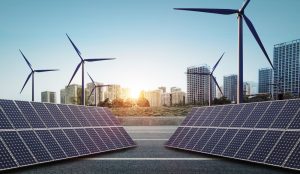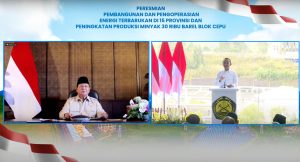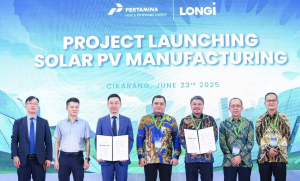Jakarta – A number of oil and gas observers believe that the policy on the price of certain natural gas (HGBT) has not fully optimised the potential of gas during the current energy transition period. The government was asked to evaluate the HGBT that has been in effect for the past two years for seven industrial sectors at USD 6 per metric million British thermal unit (MMBTU).
Chairman of the Indonesia Gas Society, Aris Mulya Azof said, the gas price policy for the downstream industry is inversely proportional to state revenue from the taxation side. This is because at first glance HGBT provides major benefits to the industry in terms of taxation, also to the downstream industry, especially in increasing product competitiveness but the tax revenue target has not been fully achieved.
“Even though the government has reduced its share on the upstream side in order to realise a certain price of natural gas,” he said in a written statement at the IPA Convex 2023 media briefing this week with the theme ‘Added Value of Natural Gas Utilisation in the Energy Transition Era’.
According to the University of Indonesia economic, LPEM, tax contribution of the seven industries that received HGBT did experience a slight increase from IDR 13,323 billion in 2020 to IDR 15,896 billion in 2021. However, on the other hand there has also been a decrease in realisation of investment in the downstream sector, where in 2020, it decreased from IDR 120,059 billion to IDR 93,521 billion.
Azof said implementation of the policy was not as simple as imagined. “The government’s efforts (in the upstream) are not at par with the benefits generated in the downstream sector. Maybe the price of USD 6 should be corrected because total state revenues continue to decrease,” he said, adding that it is urgent to develop natural gas during the energy transition era, because this energy source is considered the cleanest fossil energy compared to petroleum and coal.
Executive Director of the ReforMiner Institute, Komaidi Notonegoro said, the use of gas during the energy transition period did not only occur in Indonesia, but also in various other countries such as the United States, Germany, Russia, China and Australia. Of course, this condition will make the competition for natural gas very large in the future.
He said that the price of natural gas is not the only variable determining growth in the downstream sector. There are other variables that the government must look at to improve in order to increase business competitiveness in the downstream sector. “There are 15 competitiveness variables, including the price of natural gas. (So), there are 14 other variables that can affect competitiveness in the downstream sector,” he said. (Hartatik)













